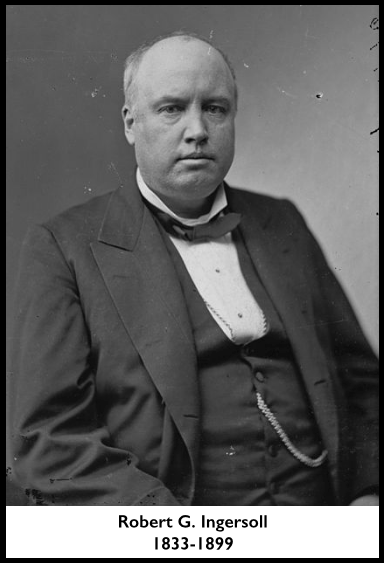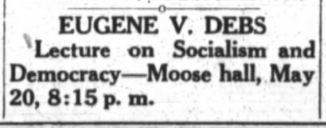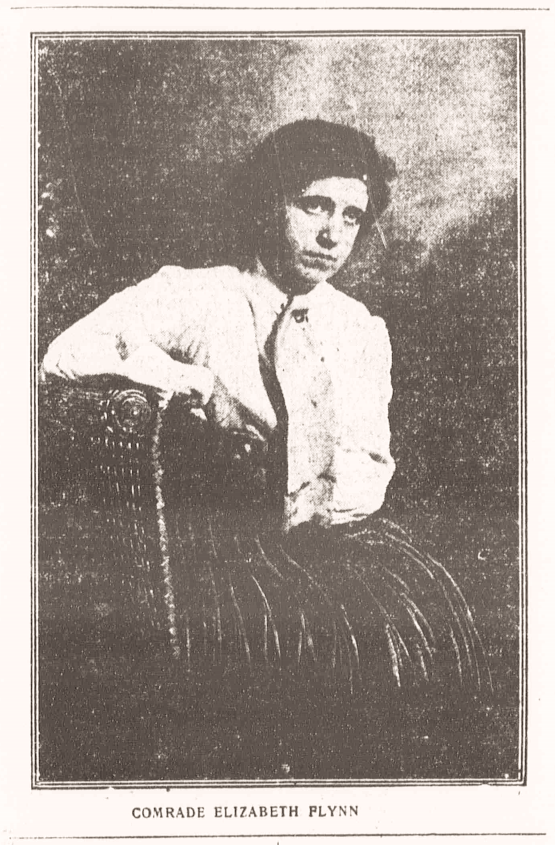 —————
—————
Hellraisers Journal – Sunday June 21, 1914
Duluth, Minnesota – Debs Speaks to Packed House, Supports Colorado Miners
From The Labor World of June 20, 1914:
DEBS DELIVERS TALK TO A PACKED HOUSE
———-
Socialist Apostle At His Best In Speech
Last Monday Night At Auditorium
———-SOCIALIST PARTY FOR THE WORKERS
———-
The Only Political Party Which Aids
Workmen on Strike Says Debs.
———-
Before an enthusiastic audience of close to 2,500 people, Eugene V. Debs of Terre Haute, delivered a most powerful address in behalf of the striking miners in Colorado and the socialist movement, of which he is recognized as America’s most forcible exponent, last Monday night at the Auditorium. To the discredit of the Duluth dailies very little notice was given to the reading public of this meeting.
When Mr. Debs entered the hall he was greeted with a rising cheer from the audience, which lasted fully five minutes.
Debs Introduced.
W. E. Towne the socialist candidate for congressman at the primary election acted as chairman and introduced the speaker as “the most loved and the most hated man in the United States.”
In opening his address, Mr. Debs pointed out the evolution in society, stating that “never in the world’s history has their been a self governing people. Aristocracy, monarchy and republic have all been governed by a minority. The working class has always been in some form of slavery or servitude.”
“Capitalism,” he declared, “must be abolished” before real democracy can be realized. Lawrence, Patterson, Little Falls, Calumet and Ludlow were cited as glaring instances of the impossibility of a further continuance of the capitalist system. The strikes of the workers at the various cities were spoken of as being lessons to the working class. “No strike has ever been lost,” said Mr. Debs. “The working class must free themselves from their bondage, and to accomplish this freedom they must unite in their industrial and political organizations regardless of nationality, creed, sex, or color.”
The Workers Being Educated.
The working class is educating itself. They are developing their own thinkers. There is nothing more glorious than a thinker in overalls. Emerson once said that “when a thinker acts the earth trembles.” The working class now beginning to think the world is being shaken to its foundations
Speaking of the socialist party he characterized it as the greatest political movement in the world. “Its final triumph is assured.” This coming triumph he declared, may be “hastened or retarded but cannot be prevented.”
That socialist speakers and adherents of the party are vilified to-day was not at all deplored by the speaker. The American patriots of the Revolution were slandered by the ruling class of their day. Such men as Samuel Adams, Thos. Paine and Patrick Henry were mentioned among the many. A glowing tribute was paid to Thos. Paine, the greatest of America’s patriots, who has been slandered and vilified for many years.
Urges Affiliation.
Mr. Debs urged upon all workers, affiliation with the socialist party. He said, “a worker in the republican party is as much out of place as John D. Rockefeller would be in the socialist party. Rockefeller knows why he is a socialist but you don’t know why you are not.”
The crimes at Ludlow were graphically portrayed by the speaker. Louis Tikkas [Tikas], the Greek miner who was murdered in cold blood by gunmen, who Debs said, “are men with the heart of hyenas and the conscience of a rattle-snake,” was spoken of as a hero.
Ben Lindsey, who visited President Wilson in an effort to adjust the struggle in Colorado was referred to by the speaker as a truthful man.
The system of society which allows a title deed to stand between the welfare of the people and the interests in control of the resources of wealth was severely criticized. “Rockefeller could have prevented Ludlow by one word. The blood of Ludlow is not only on his head but also on his hands. When Rockefeller stated that his conscience was clear then he showed he has no conscience. When Rockefeller testified that only ten percent of the miners wanted to strike, he lied,” said Debs.
Objections Answered.
Mr. Debs briefly referred to those speakers who are going around the country lecturing against the socialist movement.
The socialist does not propose to break up the home but on the contrary hopes to make the real home a possibility for the working class. When they tell you socialism will rob you of your religion, they lie, I should like to meet one of these gentlemen before a working class audience for about five minutes and I would tear him to tatters.
The socialist party is the only party that supports the working class when on strike, continued the speaker. The party sent $40,000 to the Michigan miners, and five carloads of food and three carloads of clothing.
The future was referred to as the coming ideal of man. The address was closed admist deafening applause with Ingersoll’s “Vision of the Future.”
[Photograph and emphasis added]

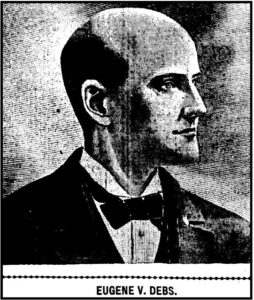
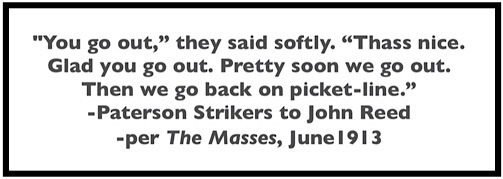 —————
—————
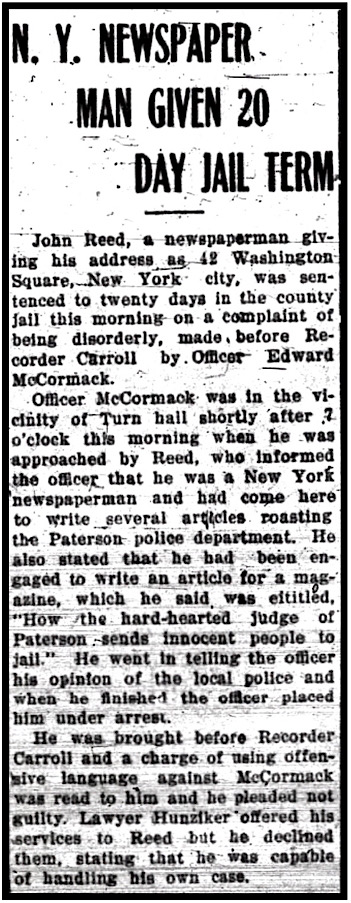
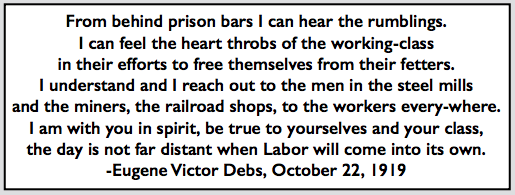 ———-
———-
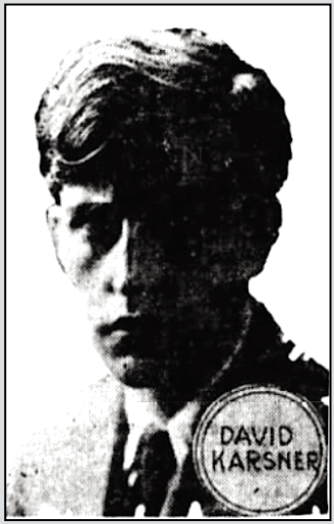
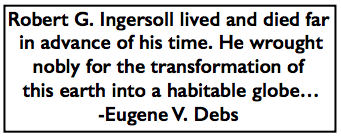 ———-
———-